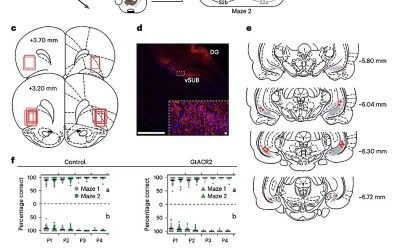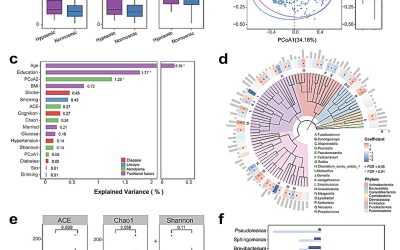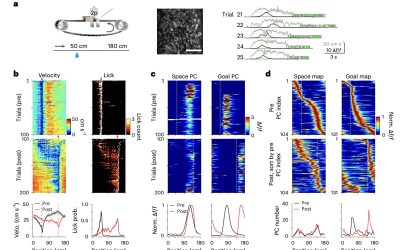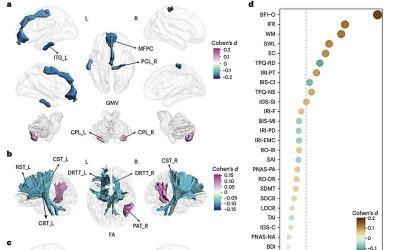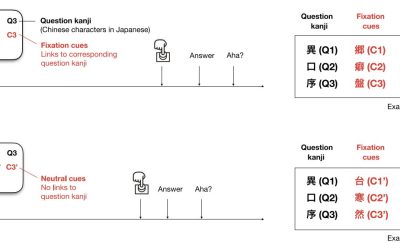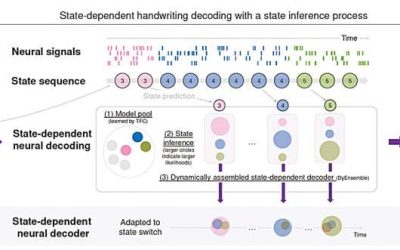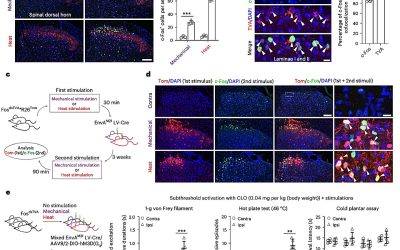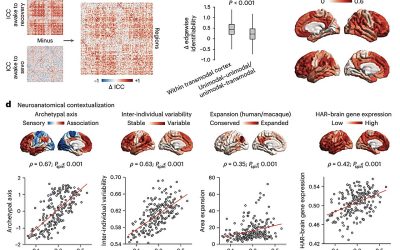As humans and other animals navigate their surroundings and experience different things, their brain creates so-called cognitive maps, which are internal representations of environments or tasks. These mental maps are eventually generalized into schemas, frameworks...
MEDICALXPRESS
Nasal microbiome may help explain link between olfactory dysfunction and cognitive decline
As humans age, particularly after middle age, their brain functions, cognitive abilities and memory can deteriorate to varying degrees. Aging-related disorders marked by cognitive decline, particularly dementia, have become increasingly widespread over the past decades.
How experience shapes hippocampal place cell activity to create flexible cognitive maps
The mammalian brain is known to produce mental representations of the spatial environment, known as cognitive maps, that help humans and animals navigate their surroundings. A subpopulation of neurons in the CA1 area of the hippocampus, which are referred to as place...
Study finds an overlap between genes linked to subjective well-being and psychiatric disorders
In psychology, the term subjective well-being (SWB) is used to describe the extent to which different people feel happy and satisfied with their lives. While some studies have found that there is a link between SWB and the diagnosis of some psychiatric disorders, such...
Study explores the impact of growing up without siblings on the brain and behavior of adults
Statistics suggest that the size of families in many countries is shrinking and a growing number of parents worldwide either willingly or unwillingly end up only having one child. While many psychology studies have explored the differences between individuals who have...
Understanding the ‘aha’ moment: Study suggests insight involves exploring greater distances within a solution space
When humans are trying to grasp a complicated concept or solve a problem, they might suddenly feel like they have gained a deeper understanding or think of something they had not thought of before. This type of 'aha' moments, broadly referred to as 'insight', can play...
New insight into how the human motor cortex encodes complex handwriting
Compared to other animal species, humans can plan and execute highly sophisticated motor tasks, including the ability to write complex characters using their hands. While many past studies have tried to better understand the neural underpinnings of handwriting and...
Healthy sleep patterns decrease the risk of being hospitalized for infections, study finds
Sleep is an essential biological process known to contribute to both mental and physical health. In addition to supporting memory processes and learning, boosting concentration, facilitating the body's recovery, and promoting cardiovascular health, good quality sleep...
Neuron groups in mice spinal cord found responsible for encoding different types of pain
Humans and other animal species can experience many types of pain throughout the course of their lives, varying in intensity, unpleasantness and origin. Several past neuroscience studies have explored the neural underpinnings of pain, yet the processes supporting the...
General anesthesia reduces uniqueness of brain’s functional ‘fingerprint,’ study finds
Past psychology research suggests that different people display characteristic patterns of spontaneous thought, emotions and behaviors. These patterns make the brains of distinct individuals unique, to the point that neuroscientists can often tell them apart based on...

